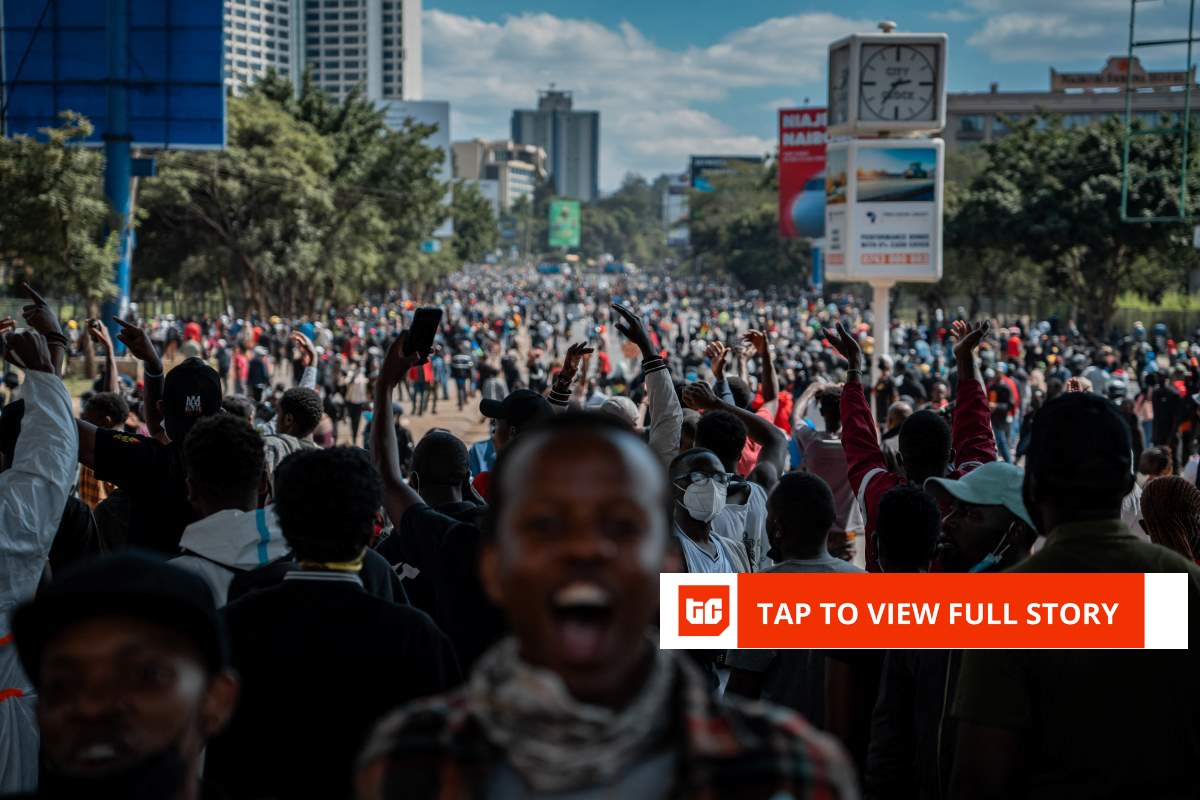On most mornings, Kenyans wake up to what has now become a familiar pattern on social media platforms: hashtags celebrating the country’s supposed economic success. From infographics touting record-low inflation numbers and job creation to testimonials praising Kenyan government programs in healthcare, education, and infrastructure, the messaging depicts significant achievements.
Yet, the progress shared on popular social media platforms like X, TikTok, and Facebook does not reflect reality. It’s a different story on the ground. Small businesses and multinationals are shutting down under heavy taxes, hospitals are turning away patients despite claims of universal healthcare, and the cost of living continues squeezing ordinary Kenyans.
Through a well-coordinated digital communication machineKenyan government ministries and departments have almost managed to shape a parallel narrative, downplaying economic hardships facing millions, discrediting critics, including independent media, and managing public perception carefully. A Nation.Africa reporttracking a series of attacks on individuals and companies, found that the majority of related posts originated from the same users.
The government uses X and TikTok to shape public opinions, hiring social media influencers to push exaggerated achievements, selective data, and, in some instances, outright falsehoods to attack critics.
Familiar social media accounts and suspiciously new ones have created a network of ‘digital mercenaries,’ labelling themselves as communication strategists and digital advertisers. When called upon, they push and amplify the messages of the highest bidder, often the Kenyan government.
“It’s a well-oiled narrative control system where State House, government ministries, and even members of parliament hire people believed to have sway on social media to push misleading content,” Said Allan Magaki, a social media researcher in Nairobi.
Take, for instance, a supposed continued economic growth under President Ruto. While government-linked influencers have highlighted increased taxation as a path to better roads and healthcare, most businesses have struggledwith over 4,000 small enterprises shutting down in 2024.
At least three multinationals, including Procter & Gamble (P&G) and G4S, have either exited the market or cut their workforce, citing high operational costs, challenging economic conditions, and unfavourable business environment.
In November 2024, Tile & Carpet, a building materials manufacturer, laid off over 100 employees, signalling a struggling economy with limited job opportunities.
Startups like Copia, Mobius, and iProcure blamed economic challenges for their collapse. In contrast, social media channels have been awash with stories of a booming economy.
“As part of its strategy, the government is enlisting influencers to promote projects like the controversial housing levy and highlighting completed house units,” said Prof. Fred Ogolla, an economist in Nairobi. ” You don’t need bloggers to tell Kenyans that houses have been built, they need to see the houses built.”
” You don’t need bloggers to tell Kenyans that houses have been built, they need to see the houses built.”
Prof. Fred Ogolla
Attack dogs for hire
A 2023 Mozilla Foundation report confirms a well-established disinformation industry in Kenya, primarily driven by social media influencers. In pushing narratives, they use tactics such as sock puppet accounts–using multiple accounts controlled by a single user, and astroturfing–masking the sponsors of online campaigns to make them appear organic.
Under Kenyan laws, government agencies like the Communication Authority (CA) and the police service protect the public from perceived harmful information while preserving people’s rights to information and freedom of expression.
But on the other hand, the government and all its extensions actively engage in misinformationaccording to investigation by Code for Africa, a digital democracy lab. Attempts to regulate social media, which could give the government even more influence on the platforms, have stalled due to pressure from human rights groups and the public.
Social media influencers are paid between $15 to $100 based on following and influence. Larger accounts with massive followings owned by public figures can attract as much as $2,000 daily, which they partly use to recruit micro-influencers to make their conversations appear organic.
“It’s a full-time job for some people, especially young tech-savvy graduates,” said an insider who worked on digital campaigns for the former deputy president. “We create talking points which we share to account owners who are required to push them aggressively.”
The insider said that influencers in a single campaign can range from 25 to 200 depending on the budget. Before 2023, the campaigns would drown genuine grievances, but it has become increasingly difficult due to widespread economic hardships.
Kenya’s internet connectivity is among the highest in the region, with 40% of the population online. Many of the country’s youth, the largest voting bloc, use social media to discuss important issues.
Silencing critics
Beyond shaping public opinions and promoting government programs, Kenyan social media spaces have become grounds for silencing critics like independent media outlets. In 2024, the Nation Media Group (NMG) was on the receiving end, with hashtags like #WhatIsNationHiding, #RIPNationMedia, and #DearAgaKhan trending on X after a publication owned by the outlet ran stories critical of the government.
The attacks even included claims that the ink and paper the newspaper uses causes cancer. Judges who ruled against implementing key government policies were also targets in the malicious campaigns.
With social media giants rolling back content moderation, Kenya’s ‘propaganda’ machine will likely continue churning. However, as economic hardships bite and widespread skepticism grows, the government’s edge on information warfare may face a test similar to the nationwide protests of June 2024.

